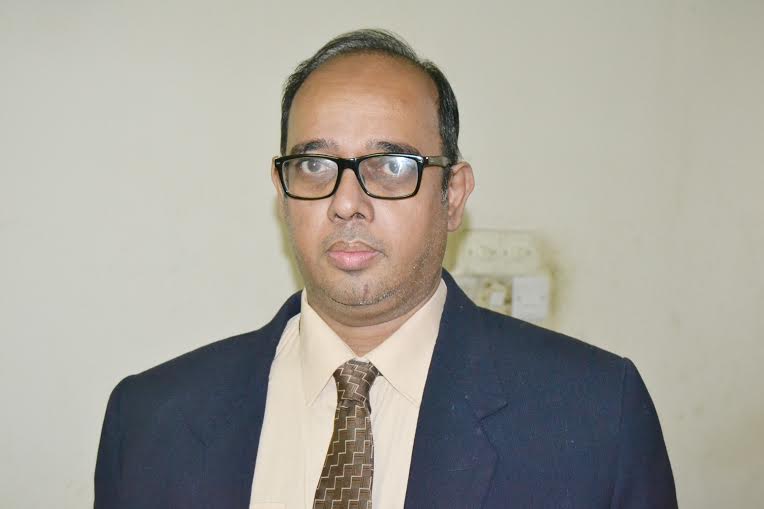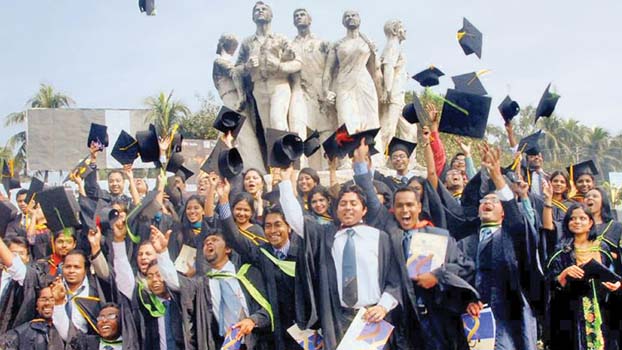Bangladesh needs to improve its higher educational system

Bangladesh government is attempting to improve its higher education system by trying to improve knowledge management at the education sector. Diverse sort of higher educational institutions are providing education both in the general line and scientific arena of the country. Bangladesh’s advanced teaching in numerous forms is conveyed by the degree colleges, university colleges and universities both public and private.
Re-alignment of the global advanced teaching agenda with the 2030 Sustainable Development Goals (SDGs) to augment teaching superiority and support existing local societies is required. In order to attain the SDGs, the global advanced education needs to accept an additional comprehensive, reasonable schedule which embraces methods that will expand their information and vantage point. SDG 4 is related to education which refers to attachment, being unbiased and excellence in teaching.
Globalization of learning is an alternative to the current internationalization discourse which advocates for the respectful sharing of cultural wealth and strengths of diverse local communities. The Ministry of Education of Government of Bangladesh with the support of the World Bank commenced a Higher Education Quality Enhancement Project (HEQEP) which be ended by December 2018. The goals were to cultivate the excellence of teaching, learning and research competences of the tertiary teaching organizations at advanced teaching level.
Bangladesh lacks scientific and technical knowledgeable persons. The country needs to develop more industry based people. Both departments as well as universities can advance their appearance and status in the country and the world through captivating suitable phases. Partnership with other universities for interactions, consultancy, case study competition, pharmacy carnival or business carnival and combined study plans need to be encouraged. National educational framework should be prepared with strategic management based on vision, mission, target and goal oriented with focused oriented implementation.
For foreign students, additional support system should arranged by the higher educational institutions such as affordable accommodation, including food, sporting activities, healthcare facilities/first-aid, and gymnasium, community engagement, and heritage, cultural and social programmes and removing language barriers. To develop a perfect model of value in the developed educational arena we can use PPF (public-private-foreign) partnership.
Love for motherland, patriotism and refraining from any terrorist activities of the students are very important. Self- assessment is a vital point to understand where the programme and courses are standing and get wider scope to modification for continuous improvement programme. Separation among private and public university should be avoided especially in case of appointment of the faculties. The law of teacher appointment should be considered. Demarcation of private and public university is an offence. Those who are involved in the process should be punished.
Globalization of learning is
an alternative to the current internationalization
discourse which advocates for the respectful
sharing of cultural wealth and
strengths of diverse local communities
Employability skill and soft skill of the education sector with creativity and innovative nature is being required to attain managerial efficiency. 2020 will channel cooperation in education and will join as strong bindings among ASEAN discourse associates and a diversity of international organizations, including entities that sustain ASEAN. Taking aforesaid example, regional and international cooperation at educational sector with visionary zeal, missionary enthusiasm guided by super goal to enhance quality education at higher educational institutes and implementation with focused based strategic planning with collaborative effort. Now the country needs to build its own branding through preparing national educational qualification framework from preprimary to tertiary level not based on Malaysia rather developed nations with a proper linkage and assessing appropriate essential to develop suitable human resources.
Macroeconomic sustainability can be attained through excellence of educational management which in turn provides positive return on investment and progressive contribution towards development of the economy of the country. Still national educational qualification framework has failed to develop despite the instruction of the Honorable Prime Minister. Members of the Accreditation council is a vested quarter who still does not show any effective result though Prime Minister hoped that they will work relentlessly for the improvement of the higher education. Rather bureaucratic mannerism in the education sector is crippling government’s initiative.
Moreover a vested quarter of the higher educational institutions who were appointed for giving logistic support failed to do so. The government implemented projects need strong educational leaders who can serve the position where they will be posted. The Education minister is trying hard but needs support through followers. Those who are lacking initiative cannot bring changes. Corrupt officials of UGC should be brought under screening by the Anti Corruption officials.
Prof Dr Muhammad Mahboob Ali is a professor of Dhaka School of Economics (Constituent Institution of University of Dhaka, Bangladesh) and
educational expert



